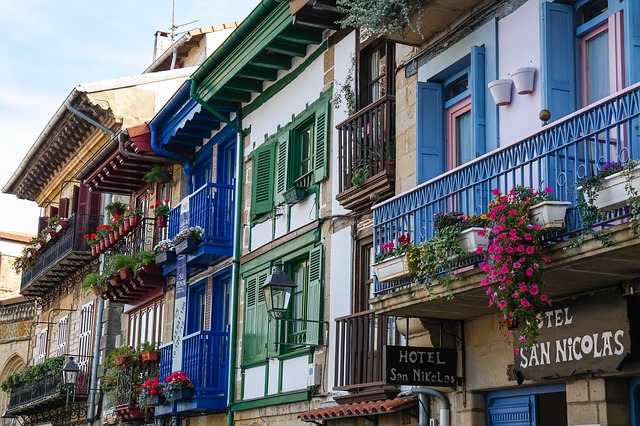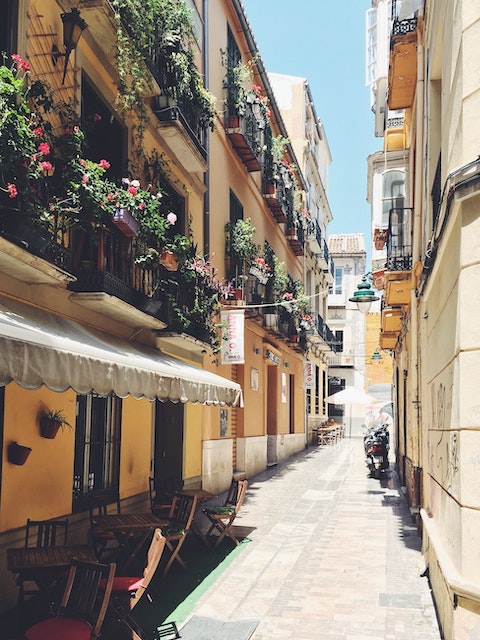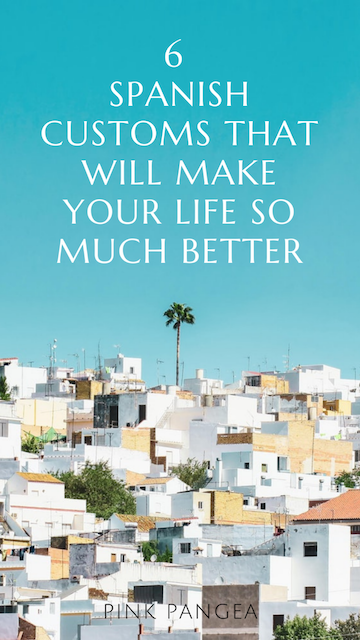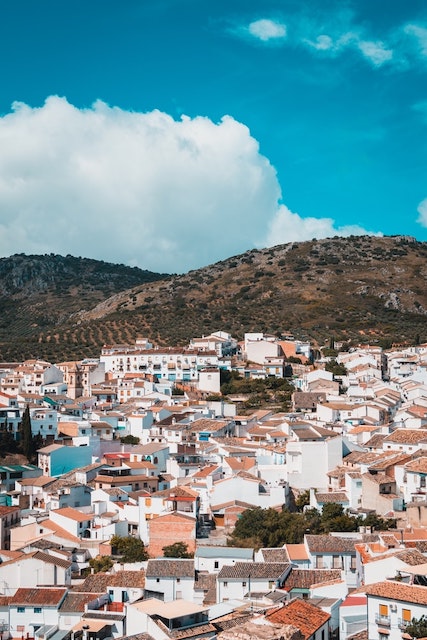6 Spanish Customs that Will Make Your Life So Much Better

After graduation, I arrived in Spain for my first post-college job and expected to feel some culture shock. Aside from the obvious challenge of living in a Spanish-speaking country, I learned a lot about Spanish culture that was new to me.
Here are six Spanish customs that ultimately made life so much better:
6 Spanish Customs that Will Make Your Life So Much Better
1. Welcoming locals
When I arrived in Spain to teach English, I wasn’t sure what kind of relationships I would have with the Spaniards. My new position was certainly different from studying abroad for a semester in college. Back then, I stayed in my comfort zone among a small group of English-speaking friends while my interactions with locals were limited to my professors, my sassy host mother, and random guys in discotecas (dance clubs).

This time, living in Spain without an immediate network of friends pushed me to make an effort in meeting Spanish-speakers, and I was pleasantly surprised at how open, warm, and welcoming they were to guiris, English-speaking tourists like me. My coworkers at school quickly became a second family.
They didn’t have to spend hours helping me find an apartment, invite me out to drinks after work, or comfort me during my first difficult weeks in Spain, but they did so without hesitation. Similarly, they were patient and encouraging when I struggled to express myself in their language.
2. Dos besos
Like most North Americans, I was accustomed to shaking hands upon meeting someone new and hugging upon greeting a friend. In Spanish culture, dos besos, or two kisses, are used for greetings and goodbyes. Most Spanish people have a different concept of personal space than Americans do, and while I found it initially unnerving, this greeting is a sure way to break the ice.
She went for his left cheek; the boyfriend went for her right cheek; and they shared an unexpected kiss on the lips, much to everyone else’s delight and laughter.
It is essential to know which cheek to kiss first, though. Although Italians kiss the left cheek first, Spaniards kiss the right cheek first. Remember this, if nothing else! I will never forget when my American friend, who was dating an Italian at the time, greeted our friend’s Spanish boyfriend with dos besos. She went for his left cheek; the boyfriend went for her right cheek; and they shared an unexpected kiss on the lips, much to everyone else’s delight and laughter.

3. Public displays of affection
Before I came to Spain, I thought I had already witnessed PDA in excess—that is, until I was exposed to Spanish teenagers. PDA is everywhere: on the metro, in parks, on benches. Young adults kiss and grope each other like I had never seen before. Almost as remarkable are the passersbys who barely give them a second glance. This may be due to the fact that Spanish people are very sexually open. I will never forget my Spanish co-workers casually discussing and laughing over sex position preferences in the staff lunchroom, much to my horror and amusement.

Many young Spaniards also live in their family home into adulthood, and it is not uncommon for them to remain there until they marry. Because of this lack of privacy, public spaces are popular for showing affection to romantic partners. At first, I was mildly horrified at seeing couples rolling around passionately in public parks.
As time went on and I started dating Spanish men, I admit that I became a somewhat tamer version of those unabashed lovers. Although some tourists seem quite offended by Spanish PDA, I can’t help but admire that Spanish people tend to be less closeted and more open with how they show their feelings.
4. Drinking culture
I’ve never enjoyed the binge-drinking culture that is popular among young adults in the United States. I rarely drank because getting drunk did not appeal to me. I hated both the pressure I felt by my peers to drink and the discomfort I felt when others praised me for abstaining.
And, I couldn’t find a happy medium of what I wanted until I discovered how much I appreciated and understood Spain’s drinking culture.
Drinking is also spread out during the day or night instead of in an hour or two.
The Spanish love to drink, and they are generally smart about it. Rarely, if ever, have I seen a Spaniard drink in excess. Weekend days in Spain are spent leisurely drinking and socializing with friends and family. In bars, tapas, or small dishes or snacks, almost always accompany a drink.
Drinking is also spread out during the day or night instead of in an hour or two. I realized how well this agreed with me and happily picked up the Spanish style, drinking to enjoy a nice glass of wine or a refreshing Mojito with good company surrounding me.
5. La siesta
I haven’t met many Spanish people who actually take siestas, or afternoon naps, on a regular basis. Yet, the tradition persists. From around 2-5 PM every day, life in Spain takes a break. The streets quiet down and the shops close. While this may seem charming, it can be inconvenient for those hoping to accomplish anything during these hours.
When the lunch bell rang at school, I would hurry down the block to deposit my paycheck at the bank before it closed or scramble to the nearest bakery for a sweet treat minutes before the doors shut.
Expect some markets, shops, restaurants, and healthcare offices to close for a few hours and reopen around 5 PM. The siesta tradition is stronger and more rigid in southern Spanish cities, and in pueblos, or villages, than it is in Madrid and other major cities. Although not ideal for those used to uninterrupted business hours, it’s nice to take advantage of the late afternoon lull to rest in a tranquil park or explore your surroundings with a fresh, peaceful perspective.
6. Relaxed schedules
As a time-conscious individual, I’m accustomed to arriving anywhere a few minutes ahead of schedule. This custom should be disregarded upon arriving in Spain. If you have plans to meet friends for coffee at 1 PM, do not expect them to be there at 1 PM.
Whenever I was late for my job and anxiously ran down the street to school, I would stumble into the courtyard only to find the teachers and students chatting outside in no rush to head to class.
Even if late nights aren’t what you’re used to, Spain’s nightlife energy is something to experience at least once.
Although not applicable to life in the States, learning to be late in Spain was a lesson in taking life at a slower, more relaxed pace. Lateness also factors into meals and nightlife. In general, most restaurants will not open before 8 PM or fill up before 9:30 PM. You probably won’t find a crowded bar if you go before midnight or a full discoteca before 3 AM. Getting used to going out much later than my usual 10 PM bar-hopping was difficult for me.
I was always in awe of the Spaniards who lived the late-night social schedule every weekend. Even taking their children out for midnight strolls. Even if late nights aren’t what you’re used to, Spain’s nightlife energy is something to experience at least once.
6 Spanish Customs that Will Make Your Life So Much Better
Related Reading
Travel Spain: 5 Off-The-Beaten-Path Destinations
Do you have tips for women travelers in Spain? What were your impressions? Email us at editor@pinkpangea.com for information about sharing your experience and advice with the Pink Pangea community. We can’t wait to hear from you.
6 Spanish Customs that Will Make Your Life So Much Better photo credits: unsplash.









Spain is a wonderful place to live. I’ve lived in four countries now, but am thoroughly in love with Spain. But do be careful with some of the differences across the country. In Andalucia, for example, it is normal to be late for social and business meetings. In Catalunya they like punctuality for business. In Andalucia life is outdoors. It is not unusual to see people outside bars drinking, chatting very noisily, even in the, relative, cold. You don’t see this in the north. Toplessness is not as common on the beach as some assume. Don’t take it for granted that it is OK, equally though, nothing is thought of it where and when it happens.
I love this country!
Great article! Can’t wait to go back so I can embrace these customs!